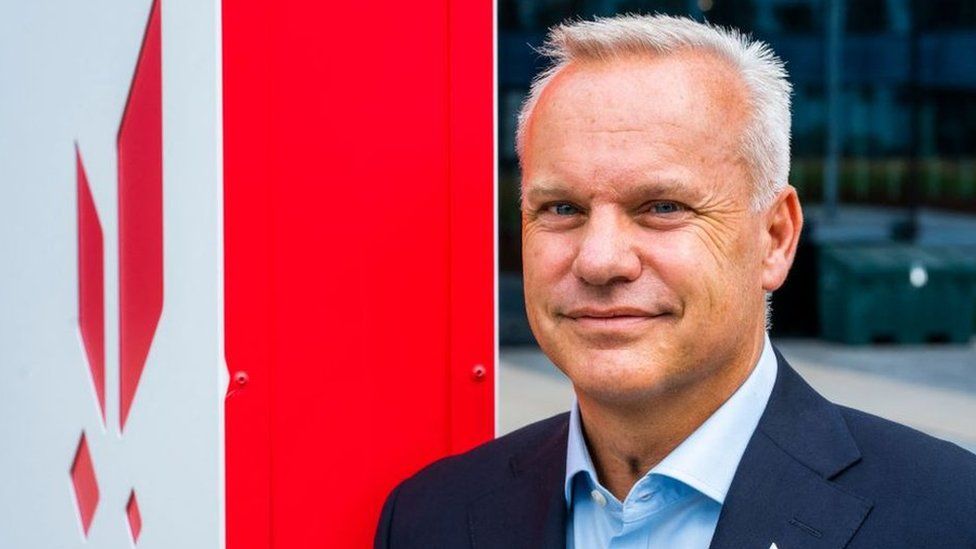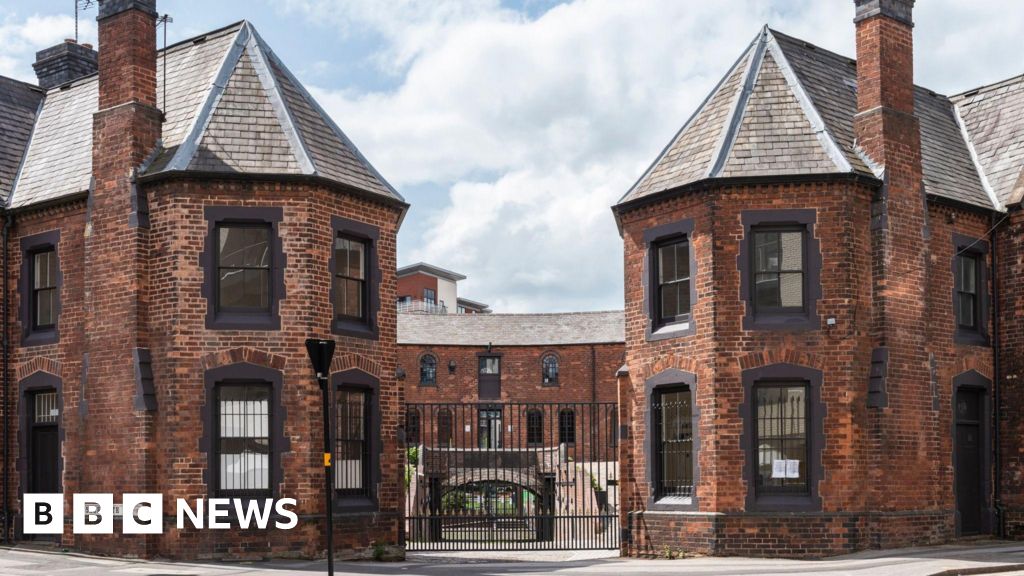ARTICLE AD BOX
 Image source, Getty Images
Image source, Getty Images
By Dearbail Jordan & Lucy Hooker
Business reporter, BBC News
The boss of Norwegian energy giant Equinor has said he does not expect gas and electricity bills to return to the levels they were before Covid.
Anders Opedal told the BBC the transition from fossil fuels towards less damaging sources of energy meant costs would remain high.
Mr Opedal also said that windfall taxes on energy firms were affecting investment in projects in the UK.
Energy companies have reported record profits because of higher gas prices.
Wholesale prices rose as Covid restrictions began to ease but soared higher after Russia invaded Ukraine and countries targeted the Kremlin with sanctions.
In recent weeks, in part due to warmer than usual weather across Europe, gas prices have returned to where they were before the Russian invasion of Ukraine.
However, gas and electricity bills for households and businesses remain elevated and are squeezing living costs for many.
Equinor, which makes most of its money producing oil and gas, is one of Europe's biggest energy companies, with operations in 36 countries around the world including the UK.
Mr Opedal said it was doubtful that gas and electricity bills would return to a time when the typical UK household was paying around £1,300 a year. The typical annual bill for homes is currently around £2,500 which includes help from the UK government.
Mr Opedal said there is "a kind of re-wiring of the whole energy system in Europe particularly after the gas from Russia was taken away". He said huge investment in renewables was needed, including using more hydrogen for example.
Image source, Getty Images
"This will require a lot of investment and these investments need to be paid for, so I would assume that the energy bills may slightly be higher than in the past but not as volatile and high as we have today," Mr Opedal said.
Looking ahead, he said "we need to treat energy as something that is not abundant".
"I think we have had a lot of cheaper energy in the past and we probably wasted some of it, so we need to make sure we're making the right investments now [and] everyone [should] use as little energy as possible."
Mr Opedal spoke to the BBC before attending the World Economic Forum in Davos, Switzerland which is an annual gathering of political and business leaders. The theme of this year's meeting, which takes place from 16-20 January, is "Cooperation in a fragmented world".
Mr Opedal took over as chief executive and president of Equinor in November 2020 with a pledge to be "a force" in the shift to green energy. He started his career as a petroleum engineer.
In Equinor's most recent financial results, it reported pre-tax profits of $24.3bn (£19.8bn) between July and September compared to $9.7bn in the same period the year before.
Last year, the UK introduced a windfall tax on energy companies that have benefitted from the spike in prices.
Initially 25%, the so-called Energy Profits Levy will rise to 35% in January and remain in place until March 2028.
The tax applies to profits made from extracting UK oil and gas, but not from other activities such as refining oil and selling petrol and diesel on forecourts.
The scheme also lets firms claim tax savings worth 91p of every £1 invested in fossil fuel extraction in the UK.
Mr Opedal said that while the tax had not impacted Equinor's investment strategy in the UK: "It is affecting how we judge each project because we have to take into account what is the tax level compared to what are all the other risks."
He cited the Rosebank oilfield off the coast of Shetland which Equinor is seeking to develop, pending government approval.
Equinor says the field could produce almost 70,000 barrels of oil a day at its peak, accounting for 8% of the UK's total oil production between 2026 and 2030.
However, environmental campaigners have described the plans as a "total betrayal" of the UK's climate goals.
Image source, Getty Images
Mr Opedal said: "There have been two changes in the tax regime already and we're thinking about will it even be more going forward? Rosebank is a project that we think is needed in the UK in terms of energy security."
He added: "Uncertainty about what will the tax level be will be an important part of the decision [to go ahead] because, for instance, now on some of the fields we have invested in we are still not profitable but pay tax already based on the windfall taxes. So this is how we kind of evaluate every project."
Equinor's Norwegian operations account for around two thirds of its oil and gas business. The rest of its oil and gas business is spread across 30 countries, with two of its largest operations the Peregrino field in Brazil and the Mariner field off Shetland, which started production in 2019.
The firm also has investments in renewables including hydroelectric power. It recently announced plans with Germany's RWE to develop hydrogen-ready power plants.
The plants will run on gas initially but will eventually be able to transfer to using hydrogen generated by renewable energy.

 2 years ago
40
2 years ago
40








 English (US) ·
English (US) ·